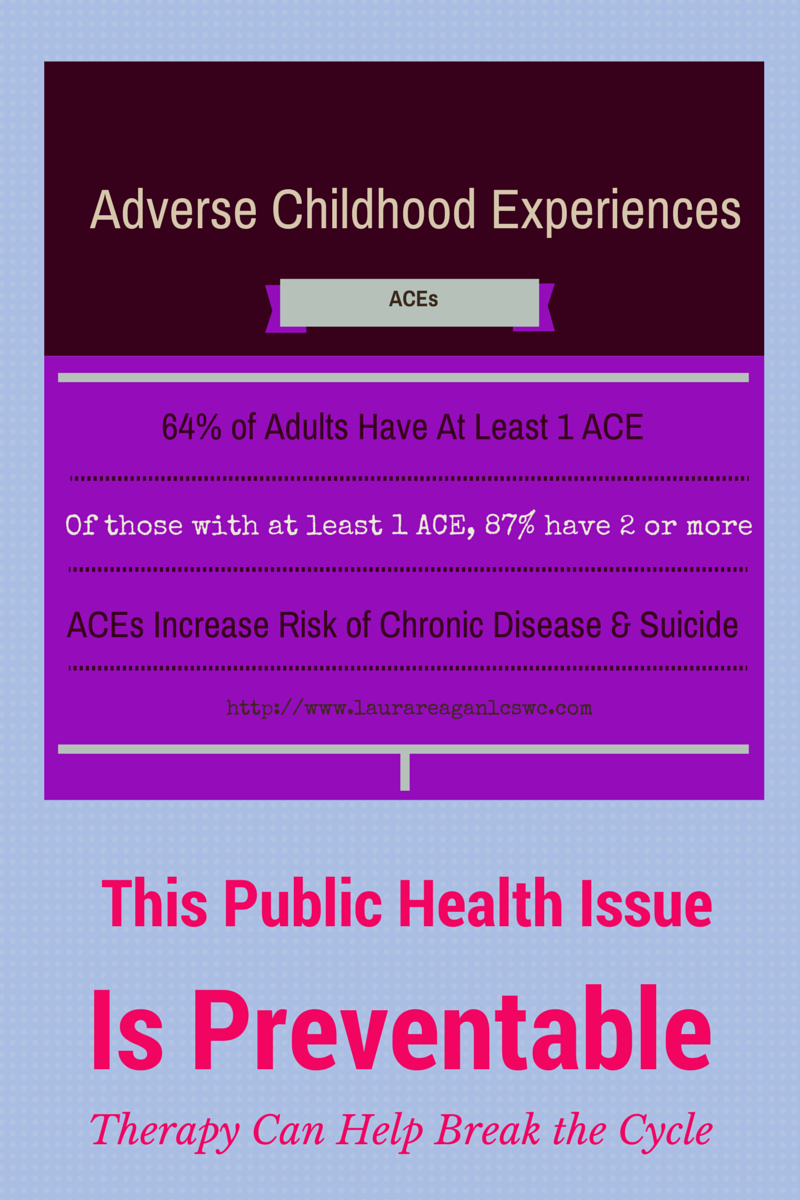The higher the score, the worse the respondents’ health outcomes. In other words, those who had more ACEs were more likely to have cancers, heart disease, autoimmune disorders, addiction, depression, divorce, and overall their lifespans were shortened by as much as 20 years compared with people who had no ACEs.
Adverse Childhood Experiences Study
This information was gained from the Adverse Childhood Experiences Study, a longitudinal study conducted by Kaiser Permanente on a huge sample of insured patients – 17,000 mostly white, educated, middle- to upper- class, employed people – in other words, some of the most high-functioning members of society who should have the best access to healthcare. This makes me wonder how much higher the stats on the incidence of childhood adversity and poor health would be if the sample had included people who live in poverty, those who are incarcerated, and others of less means and access to healthcare.
All of This Sounds Pretty Scary, but Here’s the Good News!
For one thing, if you have experienced childhood trauma, you now know that you aren’t alone. Traumatic experiences in childhood are quite common in the United States. The most important thing is to recognize that traumatic experiences can affect us years later, even if we think we should be over it by the time we reach adulthood.
How Do I Find Out My ACE score?
You can take the quiz at this link. As I’ve mentioned - and you may have read in the linked articles - the higher your ACE score, the more likely you are to be affected by mental and physical health issues. It’s scary to hear that having an ACE score of 6 or higher is correlated with lifespans as much as 20 years shorter than the average.
However, you don’t have to fall into those statistics, even if your score is high! I have worked for years helping people who have experienced childhood trauma and what I know is that having traumatic experiences is very painful, but the most damage comes from ignoring how you have been affected by these experiences – and the healing begins when you allow yourself to feel the emotions you’ve been avoiding.
When the emotional effects of childhood trauma are not addressed, they don’t go away on their own. Often we develop methods of coping with trauma symptoms - like avoiding developing close relationships so we don’t get hurt - and numb the emotional pain with drugs, alcohol, the internet, being busy, sex, shopping, perfectionism, eating disorders, work, school, and/or gambling.















